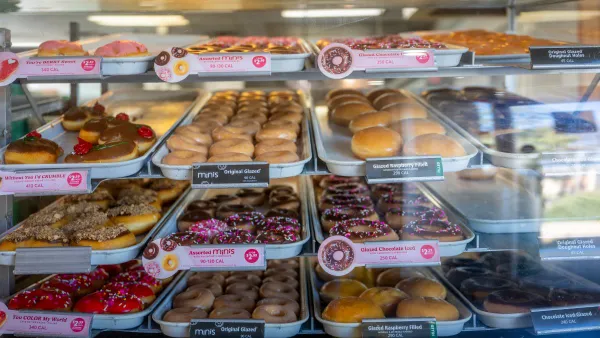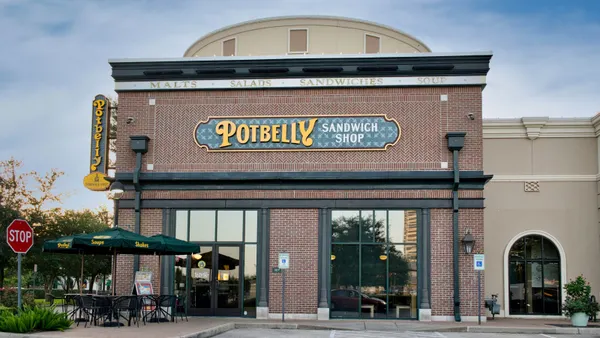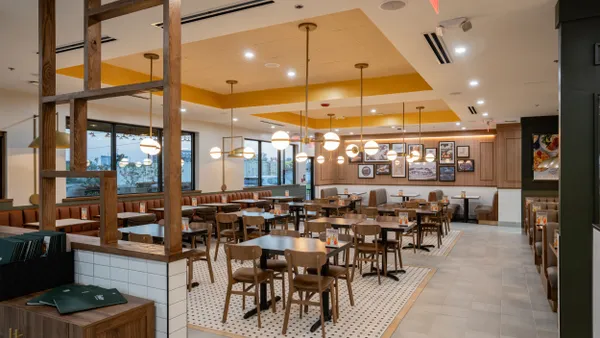Dive Brief:
- McDonald's is ending a $300-per-month subsidy it pays each franchisee related to Happy Meals beginning Jan. 1, according to an internal memo obtained by Bloomberg. Beginning in April, the chain is also asking operators to partially fund its Archways to Opportunity tuition program rather than corporate covering the entire cost.
- McDonald's is also shifting franchisees to a "pay as you go" model for technology investment, which means a temporary extra expense of $423 per month starting in March. The company said all three of these policy decisions have been in process for months or years, and operators were aware they were pending, Bloomberg reports. But Restaurant Business reports operators were "blindsided" by the news.
- These policy adjustments will hurt operator revenue, but McDonald's told Bloomberg it will allow the company to make investments in areas like employee development. Operators told Restaurant Business, however, that these changes could cost operators $170 million in 2021, or roughly $12,000 per location, and could push franchisees to turn against value-focused initiatives next year as they try to recover costs.
Dive Insight:
Given the rocky history between McDonald's operators and corporate over modernizations, these financial adjustments could increase tensions. McDonald's did not immediately respond for comment on the news.
"It’s our responsibility, as your franchisor, to ensure we invest our dollars where they will have the greatest impact to the system. To that end, we have made some difficult decisions that will enable us to achieve this objective," McDonald’s leadership wrote in the Dec. 3 memo to franchisees obtained by Bloomberg.
But these aren't small changes. The Happy Meal Rent & Service Fee subsidy has been in place for 30 years and averages $3,600 per restaurant, according to Restaurant Business. And a McDonald's franchisees told the publication that partially funding the Archways to Opportunity program could cost the average restaurant $3,571 annually. The "pay as you go" technology model charges are planned to end once $70 million is repaid to corporate, but the new monthly charges to franchisees would cost an additional $5,000 over the course of the year.
McDonald's delayed some planned financial changes to help operators weather pandemic disruption, but the restaurant's recovery in the U.S. has put the company in a secure position to roll out these adjustments, Bloomberg reports. But operators told Restaurant Business that these changes are now rolling out at the same time, and reflect a larger pattern in which McDonald's corporate is saddling operators with higher costs.
The timing of these changes could sour the chain's relationship with its operators once again, and just after it had made progress. A recent Kalinowski Equity Research report showed that McDonald's franchisees were more optimistic than they have been in years, with sentiment nearly as positive as it was in the survey's all-time-high in 2004, these changes could erode operator goodwill.
Much of this goodwill is reflective of the sales momentum the chain is experiencing from the success of McDonald's marketing around its Travis Scott and J Balvin meals and Spicy Chicken McNuggets launch will temper any backlash, especially since operators were reportedly aware these financial changes were on the horizon. The QSR giant's same-store sales rose 4.6% last quarter, and some franchisees suggested in the Kalinowski survey that the company is making gains from the struggle of mom-and-pop eateries amid dining room closures and other pandemic restrictions.
"With only a few weeks until the calendar turns to 2021, our goal as the franchisor is to keep the system operating from an absolute position of strength," McDonald's said in the memo. "An important part of that is maximizing our collective investments in the business and putting our resources where they will have the biggest impact and drive growth."
But if this shifting of resources undercuts the financial success operators have been seeing over the past few months, it could mean rough waters ahead for McDonald's and the National Owners Association, a group its franchisees formed to voice their grievances and concerns. Still, even with this financial wrinkle, McDonald's franchisees should be well insulated because of their robust drive-thru channels, which have allowed the company to make gains while fast casual and casual dining companies without the channel struggle to reach diners and grow sales.









